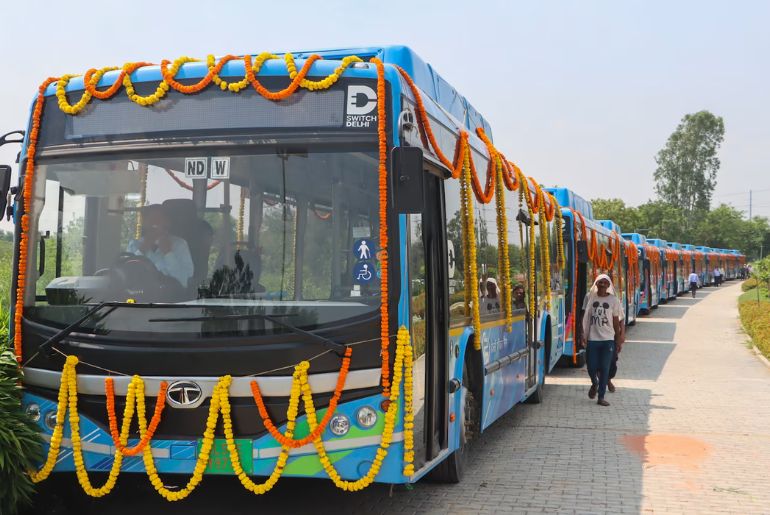Delhi Chief Minister Rekha Gupta has announced an ambitious plan to transition the city’s entire public transport fleet to electric vehicles (EVs) by the end of 2026. The initiative is part of the government’s broader strategy to combat pollution, reduce carbon emissions, and promote sustainable urban mobility in the national capital.
Speaking at an event organised by the Society of Indian Automobile Manufacturers (SIAM), CM Gupta emphasised the urgency of adopting clean energy solutions. “Our goal is to make every third vehicle in Delhi electric, ensuring a significant reduction in air pollution while providing safe, sustainable mobility for citizens,” she said.
The Delhi government is currently formulating Electric Vehicle Policy 2.0, building on the existing EV policy introduced in 2020. The current policy has been extended until March 31, 2026, to allow for public consultation on the new draft, which will include additional incentives and regulations to support the EV transition.
Key elements of the plan include:
-
Expansion of EV infrastructure, including installation of additional charging stations across the city.
-
Provision of subsidies and incentives to encourage private EV adoption.
-
Integration of electric buses and public transport vehicles into urban mobility networks.
CM Gupta also urged residents to actively participate in the transition by following traffic rules and embracing EV adoption, highlighting the role of citizens in achieving a cleaner, safer Delhi.
The initiative aligns with national goals to promote clean energy and reduce the transportation sector’s contribution to carbon emissions. By making public transport fully electric, Delhi aims to set a precedent for other Indian cities to follow in the shift toward sustainable mobility.
With this roadmap, Delhi is poised to become a leading example of urban electrification, providing both environmental and public health benefits while supporting India’s overall EV adoption targets.

